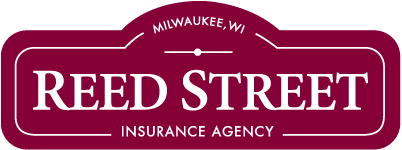It’s easy to feel like there’s no benefit to buying insurance unless you file a claim.
Yet a look into what the world would look like without insurance proves otherwise. That’s because insurance acts as a sort of glue that helps society function.
After all, there was insurance well before there were insurance companies. “Before most people bought insurance from an insurance carrier, local social clubs and alliances of businesses banded together to form, in effect, tiny mutual insurance companies,” says Michael Barry, vice president of Media Relations at the Insurance Information Institute. “Insurance enables behavior that would not take place if it wasn’t available.”
So what would a world without insurance look like? Here are nine likely realities.
1. Home ownership would only be for the very wealthy. Imagine if you had to pay for everything after a fire or other disaster wiped out your home and its contents. Would you still buy a house knowing you could go bankrupt after one unfortunate event? Even if you would, mortgage companies might not be willing to lend you a large sum of money if there was no way they’d get quickly reimbursed after a large loss.
“Who could buy a house—which is most people’s single largest asset—and take the risk that a fire might destroy it, leaving them homeless?” says Barry.
2. Driving a car would be an incredible financial risk. Even safe drivers get in accidents. And while fender benders often creep into the thousands of dollars, the real costs pile on when someone is injured or dies. In a world without insurance, people would probably still drive—but they’d face much more risk when they did.
3. It would be nearly impossible to start a business. Just like a home mortgage lender, a business lender wants to know they’ll receive quick reimbursement if a building or a key piece of equipment was destroyed, damaged or stolen. In a world without insurance, aspiring business owners would have a hard time qualifying for a needed loan.
“Without insurance, people and businesses would be unwilling to take risks, so there would be less invention and less investment in money- and life-saving innovations,” says Barry.
4. People would shy away from risky—but necessary—jobs. Professionals from financial advisors to doctors to architects purchase professional liability insurance policies to protect against errors, omissions and malpractice allegations. If people with particularly risky jobs (like surgeons) knew they could lose everything over an accidental error (or even defending a baseless claim), they would be much less likely to enter a certain profession. And that could leave many critical positions unfilled.
5. The economy wouldn’t be as strong. The property-casualty insurance industry employs approximately 2.3 million people in good-paying jobs. Property-casualty insurers also invest approximately $1.4 trillion in the stock market through stock, corporate and government bonds, and real estate mortgages.
“These investments are a major source of borrowing for municipalities, states and corporations,” says Barry. “Without insurers’ investments, borrowing would be more expensive, making many projects unaffordable.”
6. Communities would be less strong. In addition to employing millions of people in good-paying jobs, insurers and insurance agents donate billions of dollars to worthy causes and charities each year.
7. We’d probably pay more taxes. An insurance policy helps people overcome misfortune. Without it, it’s very likely that many more people would rely on the government if their house burned down or they became bankrupt after a lawsuit wiped out everything they had.
8. Things probably wouldn’t be as safe. Insurance companies incentivize us to live safer by offering discounts for safe driving, having fire alarms and more. Many insurance companies also employ risk control consultants who can help business owners make their workplaces safer. A world without insurance would lack many of these incentives to live safely.
9. We’d probably have a lot more ulcers. Having to constantly worry about being financially wiped out after an accident or an unfortunate event would be a huge source of stress for most people. Many people would also build up huge emergency funds, which would reduce the amount of money they had for vacations, hobbies or simply a fun night out. Not having the means to enjoy the good stuff in life would also contribute to an increase in stress levels.
As the list above shows, insurance plays an important role in virtually every person’s life. Not sure if you have the right coverage? Then contact an insurance professional like an Erie Insurance agent to get the right coverage at the right price.Best Authentic Sneakers | Nike SB
